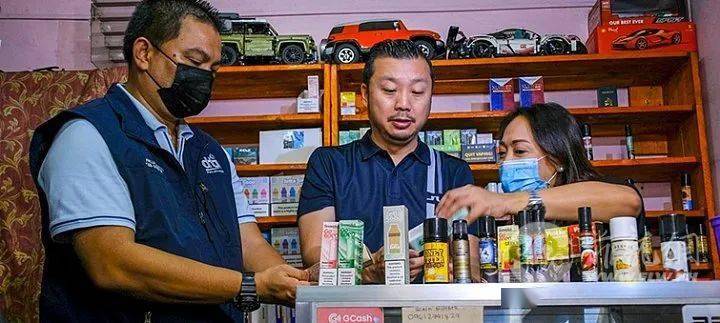Philippines’ Vape Tax Enforcement Yields $17 Million in Six Months Amid Crackdown on Illicit Trade
Date: May 16, 2025
Location: Manila, Philippines
The Philippines has witnessed a significant surge in vape tax revenues, collecting ₱942 million (approximately $17 million) in excise taxes within six months of implementing a new tax stamp system. This marks a substantial increase from the ₱224 million ($4 million) collected throughout 2023, highlighting the government’s intensified efforts to regulate the E-cigarette industry and combat illicit trade.
Implementation of the Vape Tax Stamp System
In June 2024, the Bureau of Internal Revenue (BIR) introduced a mandatory tax stamp system for vapor products. This initiative aimed to ensure that all vape products sold in the market are compliant with tax regulations, thereby reducing the proliferation of untaxed and potentially unsafe products.
According to BIR Commissioner Romeo Lumagui Jr., the system has been instrumental in increasing tax compliance among vape product distributors and retailers. “There will be no letup in our fight against illicit trade,” Lumagui stated, emphasizing the agency’s commitment to ongoing enforcement efforts.
Crackdown on Illicit Vape Trade
The BIR’s enforcement actions have extended beyond tax collection. In April 2025, the agency filed criminal complaints against importers and distributors of illegal vape products, accusing them of evading ₱8.68 billion ($156 million) in taxes. The charges targeted companies associated with brands such as Flava, Denkat, and Flare.
Additionally, in collaboration with the Bureau of Customs, the BIR destroyed ₱3.26 billion ($58.7 million) worth of seized vape products, demonstrating the government’s resolve to eliminate illicit E-cigarette products from the market.
Seizure of Illicit Vape Products
In a recent operation, the BIR confiscated over 81,000 illicit vape pods valued at more than ₱543 million ($9.7 million) in tax liabilities. The products were discovered in a residential compound in Marilao, Bulacan, and were found to be lacking the required tax stamps, violating the National Internal Revenue Code.
Commissioner Lumagui warned that individuals involved in the trade of untaxed vape products, including sellers, endorsers, and influencers, could face tax evasion charges under the tax code. “Illicit vape criminals have no place in our homes and neighborhoods,” he asserted.
Impact on the Vape Industry
The intensified enforcement measures have significant implications for the vape industry in the Philippines. Legitimate businesses are encouraged to comply with tax regulations to avoid legal repercussions. The crackdown also serves as a warning to international suppliers and online retailers to ensure their products meet Philippine tax and regulatory standards.
Moreover, the government’s actions underscore the importance of consumer awareness regarding the legality and safety of vape products. Consumers are advised to purchase vapor products from authorized retailers and to verify the presence of tax stamps on packaging.
Regulatory Framework: Republic Act No. 11900
The enforcement efforts are grounded in the Vaporized Nicotine and Non-Nicotine Products Regulation Act (Republic Act No. 11900), enacted in July 2022. The law regulates the importation, manufacture, sale, packaging, distribution, use, and communication of vaporized nicotine and non-nicotine products, including Fruit Flavored Vapes.
Under this legislation, the Department of Trade and Industry (DTI) and the Food and Drug Administration (FDA) are tasked with overseeing the compliance of vape products with health and safety standards. The law aims to protect public health while allowing adult smokers access to less harmful alternatives.
Conclusion
The Philippines’ aggressive stance on regulating the vape industry through enhanced tax collection and enforcement actions reflects a broader commitment to public health and fiscal responsibility. As the government continues to clamp down on illicit E-cigarette trade, industry stakeholders must navigate the evolving regulatory landscape with diligence and compliance.
For more information on the Philippines’ vape regulations and enforcement actions, please refer to the following resources:
Note: This article is intended for informational purposes and reflects the situation as of May 16, 2025. For the latest updates on vape regulations in the Philippines, consult official government sources or legal counsel.
Discover more from Ameca-mall
Subscribe to get the latest posts sent to your email.

